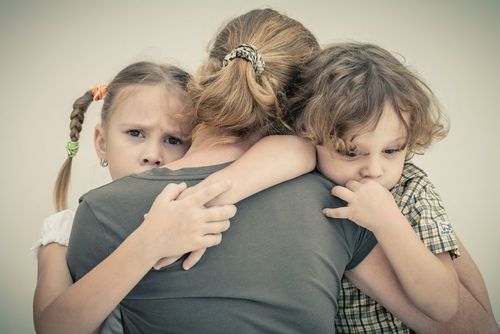Domestic violence crosses all races, cultures, religions, ages, sexual orientations and socioeconomic groups.
It’s reported that 1 in 3 women and 1 in 4 men have experienced abuse by an intimate partner. The effects of domestic violence are far-reaching. From schools and neighborhoods to businesses and communities, its impact and costs are felt by all of us.
Children

According to UNICEF, “The single best predictor of children becoming either perpetrators or victims of domestic violence later in life is whether or not they grow up in a home where there is domestic violence.” Children experience domestic violence differently depending on many factors in their lives. Children may routinely hear or see the abuse; be used by the abuser to manipulate their parent; experience direct victimization by the abuser; or live in a home that is unstable due to economic abuse. Each exposure to domestic violence can have short and long-term effects on children, but exposure nearly always increases a child’s feelings of vulnerability.
Children represent our greatest hope for a violence-free future. At SafeHouse Denver, we provide counseling and a nurturing environment, through both individual sessions and group activities, for children who have witnessed or experienced domestic violence.
Throughout our services, SafeHouse Denver introduces families escaping abuse to programming that fosters strong, responsive relationships between children and adults and supports healthy child development. These services also empower parents as they work to meet their family's needs. Our services specifically help children improve their self-esteem, practice safety planning, learn healthy ways to express their feelings and cope with grief and loss. Family activities help parents and children develop healthy boundaries, provide support during transitions and develop healthy discipline techniques.
Paired with domestic violence education, cultivating these positive relationships will help to build a new generation of individuals who have reclaimed their right to a life free from abuse.
Teenagers

Research has established that dating violence is much more common than parents or educators may have previously believed. Approximately one in three adolescent girls in the United States experiences physical, emotional or verbal abuse from a dating partner – a figure that far exceeds victimization rates for other types of violence affecting youth.
Below are some resources that you or your teen can use to establish healthy dating guidelines. Please call our 24-Hour Crisis Line (303-318-9989) at any time to ask questions or talk with a professional about supporting your teen.
Resources specifically for teenagers, including support through text and online chat, can be found at LoveIsRespect.org.
DATING BILL OF RIGHTS
I have the right to…
- Ask for a date
- Refuse a date
- Have my own thoughts and feelings and communicate them
- Have my limits and values respected
- Be heard
- Set physical, emotional and sexual boundaries
- Have friendships outside of my relationship
- Say “no”
- Be safe on a date
- Be treated with respect
- Disagree with my date
- Determine who I will date
- Control my own destiny
- Get angry
- Be assertive on a date
- Leave any dating situation when I don’t feel safe or it doesn’t feel right for me
- Have a healthy relationship
Colleagues
The CDC has estimated that the cost of domestic violence and other forms of abuse exceeds $8 billion every year when accounting for medical and mental health care services as well as lost productivity. Women who have experienced domestic violence reported an average of 7.2 days of work-related lost productivity and 33.9 days of lost productivity related to household management (i.e. child care, school and activities).
Some of the signs of potential abuse that coworkers or employers might notice include:
- An unusual number of phone calls or visits from a current or ex-partner
- Emotional distress, tearfulness and depression
- Sensitivity about home life or references to difficulties at home
- Self-confidence is lower than it previously has been, or the person seems unusually hard on themselves
- Injuries attributed to falls, being clumsy or accidents
- Uncharacteristic absenteeism and lateness, or marked changes in job performance
- Inappropriate dress for the weather (i.e. long sleeves or turtleneck to cover up), heavy makeup or sunglasses
Domestic violence has a serious impact on businesses, affecting their performance as well as the health and well-being of their employees. If you are concerned that someone you work with is experiencing domestic violence, please call our 24-Hour Crisis Line at 303-318-9989 to learn how you can help.
We also have a packet available that was specifically designed to help HR professionals guide conversation and intervention when supporting colleagues who are experiencing abuse.

